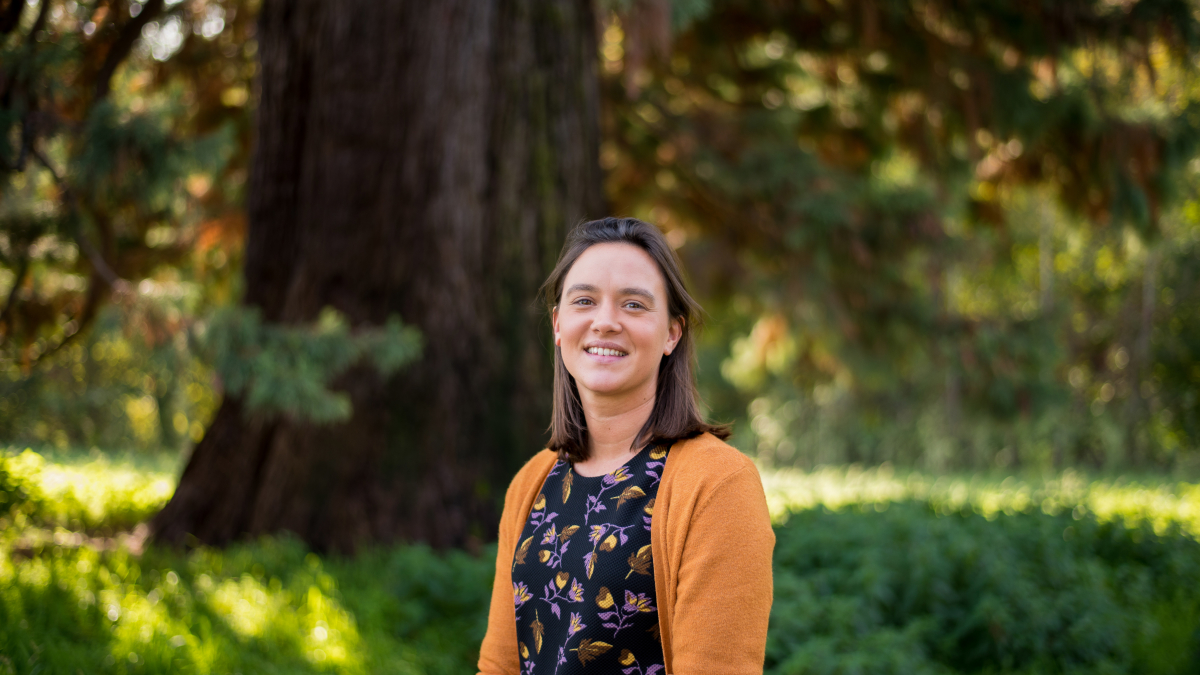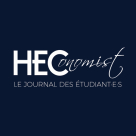12.12.2022
Special Report
Interview – Virginie Lurkin, the future of education.
The HEConomist team met with Virginie Lurkin, Assistant Professor in the Department of Operations of the HEC Lausanne Faculty. She talked to us about her background but also about her vision of the future of education and her methods to engage students and create more interactive classrooms.
Can you quickly introduce yourself and tell us about your background?
I am Virginie Lurkin, Assistant Professor in the Operations Department of the HEC Lausanne Faculty. I joined the faculty in the summer of 2021. Before that, I was a professor for 3 years at Eindhoven University of Technology. So I can say that I have a cross-over background between business and engineering studies. Today, I teach Operations Management at the Bachelor level and a course focused on analytical methods for operations management at the Master level.
Why did you join HEC Lausanne?
I spent two years at the EPFL for my post-doc and I fell in love with the region. The mountains, the nature, the landscapes. As a result, I got this job in Eindhoven, the Netherlands, which brought me closer to my Belgian roots at that time. I quickly realized that I missed the Alps and so when I heard that a position was available at HEC Lausanne, I was very enthusiastic about the idea of returning to live near them, not to mention the beauty of Lake Geneva. Professionally too, I find that the region offers a unique dynamic with the proximity of the UNIL and EPFL campuses, which allows for many opportunities for collaboration.
You say that you have been to several institutions and countries, whether for your studies, your research or your teaching. What do you think is the main difference between these countries?
I'm glad I've been to different institutions because I think that contrasts reveal colors and therefore nuances. For both research and teaching, the cultural differences are striking. In Eindhoven, for example, the entire curriculum is in English. For me, what I brought back from the Netherlands is the mixed-format learning, with some activities organized in class and others that can be done at home. This is a move away from a one-way learning model where the teacher develops the lesson and then "recites" it to the students who listen passively. In moving away from this traditional teaching mode, I try to engage students more and capture their attention so that they are active in their own learning.
You talk about interaction, how do you implement it in the classroom today?
Today, I try as much as possible to include active learning opportunities in my classes. For my Bachelor's course, it is more difficult because there are a lot of students. One solution I have found is to include quizzes with interactive tools, for example Slido. Each course contains several questions and students can vote with a QR code that they have to scan with their smartphone. This allows students to test themselves and I get a better live sense of class engagement based on the number of responses. These quizzes also create more interaction and discussion since the idea is to comment on the results and invite the braver ones to explain their choice. This is very beneficial for both the students and me.
Does the implementation of these tools affect the students’ final grades?
It’s my first time doing it, so I don’t know yet. In any case, I’ve gotten positive feedback from very happy students. The course received the Best Teacher's Award, which, I hope, reflects their satisfaction. I sincerely believe that students appreciate opportunities to test their understanding of the course concept without there being an impact on their grade.
Have the pandemic and all associated adjustments for remote learning helped to move towards this more digital teaching method?
Yes, I think the pandemic truly proved that these tools had some good to them. Speaking of which, I put them in place during the semester where I was teaching both on- and offline. I needed to generate interaction and this allowed me to engage people both on-site and online. We kept a connection between the classroom and the students at home, which was important.
Do you think online classes should continue?
My perspective is that we are useful in the classroom as teachers, but we need to use that time to interact. There are certainly parts of our readings that could be replaced with little video vignettes to watch or chapters to read at home. In the classroom, I think we need to try to have interactive activities, which allow students to test themselves, but also to review what was misunderstood. This requires adapting one's teaching according to the feedback received from the students by re-explaining certain concepts that are more problematic for them for example. For example, last year I changed my schedule for the Bachelor's course to set aside a session to review some concepts that were not understood by the majority of the students. For the coming year, instead of the exercise sessions led by assistants, we have set up Moodle quizzes that will be put online every week. This way we will also have the statistics of the answers and will be able to react if nobody answers or if many students answer wrong since this may indicate that the concepts are not clear. Moodle is an under-exploited tool in my opinion with many possibilities which should be used more.
In the future, where might these tools fit in?
They are useful for certain parts of teaching, but we are also useful in the classroom as teachers. During the pandemic and completely digital teaching, we saw that many students were putting off learning for the end of the semester which prevents proper digestion of knowledge. The combination of the two would be ideal. You have to think about creating the course from the start based on these tools, which is not a simple task and requires some thought. The faculty pushes us a lot to do this by making many resources available. There is also a great teaching team at UNIL that is there to help us. That being said, we also have to recognize that being a professor has many facets (which makes it fascinating) and that we have to find the time to rethink our courses and put all of this in place.
We've talked a lot about methods. Which subjects should be more present?
Sustainability, without a doubt, and students are asking for it. The E4S Master's degree, for example, is an excellent thing. But I’ve noticed that it is the faculty’s intention to ask the professors to integrate these topics more and more in all courses, not only in a specialized program. In my case, for my courses, I try to include examples related to these sustainability issues, for example by considering a company that would like to minimize its CO2 emissions and not its economic costs. The faculty makes a point of addressing these issues. If we want to eliminate the flaws of the current system, it is important that our educational system trains the future generation in this sustainable thinking, but also in ethical and community thinking.
Should these concepts also be integrated into the basic Bachelor's courses?
I believe in this very strongly. I think there should be an introductory course on the key elements of sustainability and ethics, but also integrating these topics in all courses, those related to operations but also those related to accounting, finance and marketing, it would be very interesting. Also, most of our professors are doing research and more and more research is going into these issues as well.
Is there another topic that could be addressed more?
I think that diversity is one of the key topics of the deanship as well. But for example, a subject that is very present at EPFL that seems to me to be less visible at UNIL at the moment is the mental health, which is for me a very important topic. But overall, I think that the diversity and sustainability battles being waged by UNIL and HEC at the moment are noble and I hope that they will bear fruit in the years to come.
Where do we stand compared to other countries in terms of the implementation of digital tools?
Switzerland has an innovative DNA, but it is also the country of the politics of compromise. In Eindhoven, mixed-format learning was imposed, which accelerated the process on the teachers' side. I hope that here it will not take too long and that teachers will quickly be convinced of the benefits of this teaching.
Why is interactive teaching so important to you? Is it something you missed as a student?
I think it is interesting for both students and teachers. The first time I taught a class during the pandemic, all the students had their cameras off and I really felt lonely faced with that black screen. It's important for a teacher to feel their students are active. For the students too. I often say that enthusiasm is the fertilizer that makes knowledge flourish. Classes should not just be listened to, they should be experienced. In my opinion, beyond courses, evaluations could also change, to move away from the traditional carrot-and-stick model and explore other horizons such as collective evaluations.
Are you thinking of online exams for example?
I have the feeling that this is what HEC is working on the most now by wanting to evaluate more via Moodle for example. But I think that beyond that, we also need to get away from the standard knowledge restitution and move towards case studies or other innovative models. I think we should not hesitate to turn to digital means when it is suited to the knowledge we want to test. Sometimes it's not possible and in that case, of course, you have to keep the traditional model.
In terms of language, do you think English should be more integrated in the Bachelor's level? Or even German?
I think it is important that the university keeps its identity and does not only offer English for its Bachelor program. However, it would be interesting to offer both for our students, but also for university exchanges. Offering a program in English would broaden the possibilities in terms of partner institutions for bilateral agreements. French-speaking students would also be able to improve their English and be more at ease when they jump into the deep end that is the Master's program.
We would like to thank Virginie Lurkin for giving us her precious time to answer our questions and for sharing her vision of the future of teaching.
Manon Guiraud


